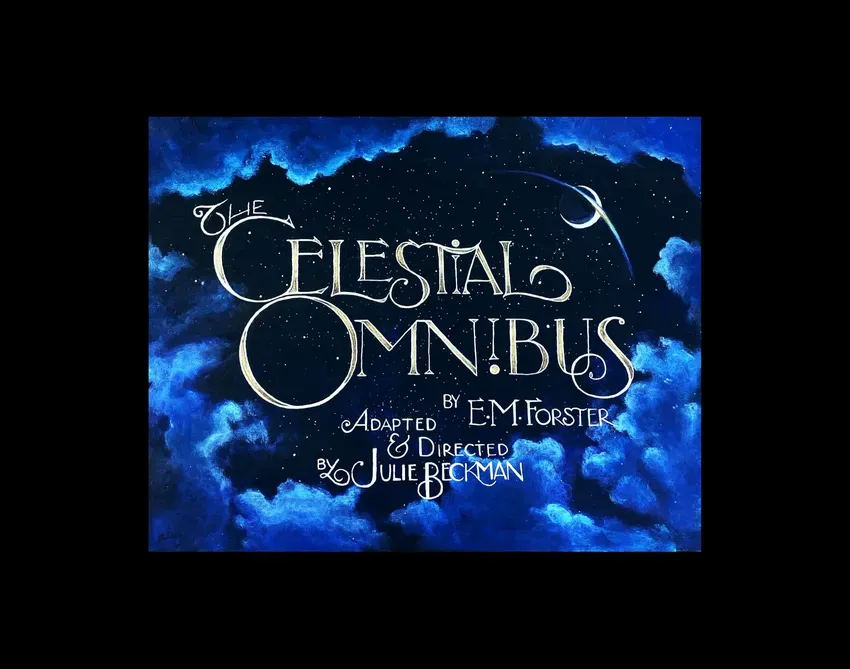Close your eyes and slip into a dreamy realm of endless opportunity. This is what it felt like to be immersed in the radio play The Celestial Omnibus by E.M. Forster, which was written in 1911.
The play pulls you in with an imaginative story, enchanting cast, and magical sound design. Between the ambient sounds and sound effects, I felt as if I were there, too, journeying with the immortals – feeling belittled by those in "reality" but at peace once in the realm of light and vivid rainbow reflections.
There is a distinction to be made between an internal narration while reading the story and the narration of the radio play. During the latter, I felt myself imagining greater and grander things with each description, noise, and whisper. This made me feel as if I were the singular audience for this story of the decay of imagination that comes with aging.
The narrator, Jennifer Ewing, tells the story of Forster's main character, The Boy, a fragment of his imagination: "... the Narrator was at one time The Boy, with a wisdom and sense of irony that comes with more years of lived experience."
Through the eyes of The Boy, we are gently reminded of youth and its endless possibilities, and how literally things used to be taken when we were young, how we used to admire things or people and wished to be just like them.
Yet, we are also shown how we have become like Mr. Bons, a wise man in his own right but one of little faith. He has no will to be a part of something more "celestial" than his evident experience or knowledge.
The Boy is ridiculed by his own parents for reading the instructions for the Omnibus vehicle in the alleyway, just because he took it literally. On the other hand, when Mr. Bons accompanies The Boy to the Omnibus to confirm his denial of its existence, he is proven wrong. So, the play paints a simple- minded society in gray, and the only specks of color are described by this imaginative boy.
In The Boy's first journey on the Omnibus, Sir Thomas Brown asks him if he is afraid, whereupon The Boy responds, "What is there to be afraid of?" This fearlessness is shown to be the reason why the Omnibus exists.
The Boy places his spirit and truth into the Omnibus, as well as the immortality of his conjured poets. Hence during the journey with Mr. Bons, the driver Dante talks to Mr. Bons "in spirit and in truth" regarding poetry and how one must love it. This can be interpreted as an allegory of life itself, describing a world where no one believes The Boy or his truths. I assume this only means that if life is lived without truths or spiritual ignition, then that person's life is no different than Mr. Bons', according to Forster.
At the end of the play, there is a striking pause as things transition back into "reality." The Narrator tells us, "Someone had crowned him" The Boy. The twist at the end leaves you wanting for nothing and pondering your own mortality.
I believe Forster's purpose was to convey how dreams may be subjective for every individual, and when we stop dreaming, it is the end to the means of or purpose as to why we live at all.
The cast's beautiful execution of this fantastical script gives the audience an excuse to sit or lay there for 45 minutes and just imagine, to remind ourselves to dream.
The Celestial Omnibus can be found at Theatre22.org until May 30, 2021. It is Theatre 22's first on- demand radio play. Tickets are name-your-price.


